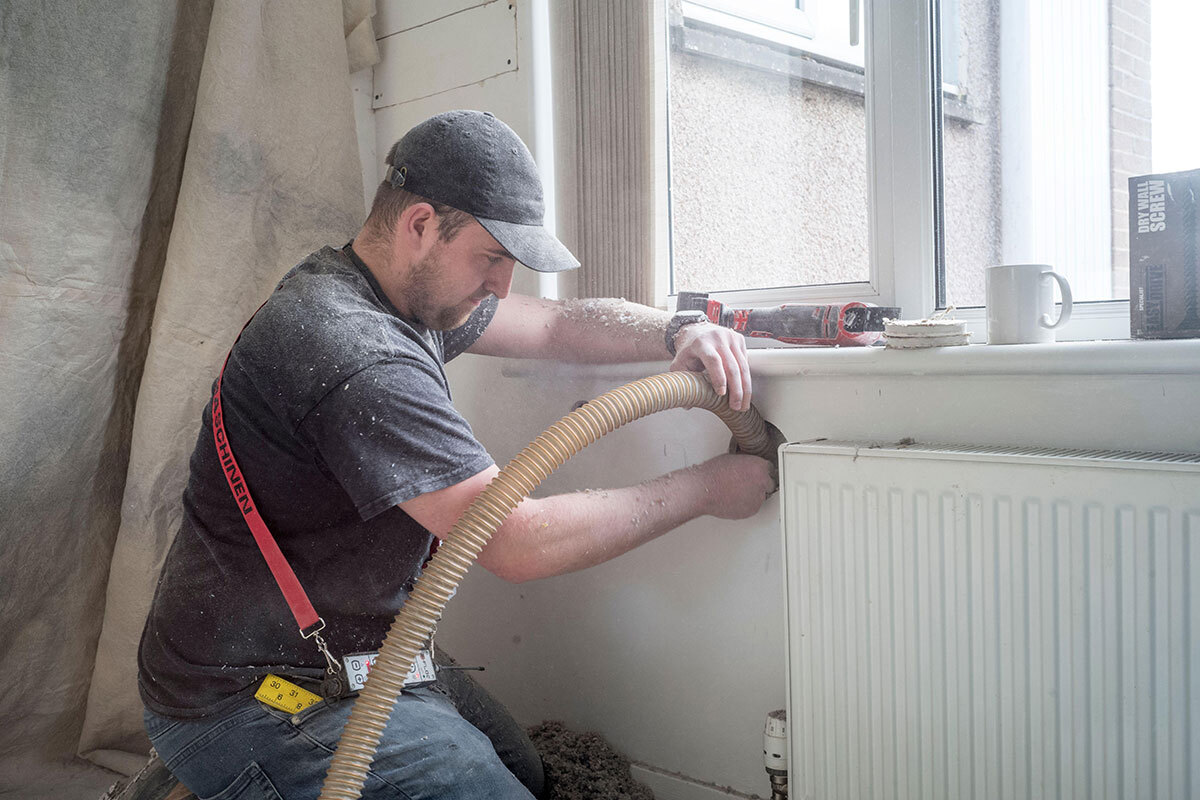Government plans to train 18,000 retrofit professionals
Ministers have unveiled plans to train up to 18,000 people to install heat pumps, fit solar panels, install insulation and work on heat networks.
As part of its Warm Homes Plan, the UK government has promised to create a “clean power army” by extending the Heat Training Grant and launching the Warm Homes Skills Programme.
It will also invest a multimillion-pound sum in a heat pump parts manufacturer in Northern Ireland.
Under the proposals being considered, Whitehall aims to give homeowners more choice over ways to access heating systems and bring down costs.
In an update on the Boiler Upgrade Scheme, which offers up to £7,500 off the cost for heat pumps, the government said demand for heat pumps is rising as 4,028 applications were received in March 2025, up 88% on the same month last year.
It has also launched a new consultation on expanding the Boiler Upgrade Scheme, in an attempt to give families even greater choice to pick what works best for them.
Changes to the scheme could see families potentially access air-to-air heat pumps and electric heating technologies such as heat batteries (currently not eligible for grants under the scheme), alongside new purchase and ownership models which could spread the cost of a heat pump over several years, or give households the opportunity to lease one for a monthly fee instead.
The National Housing Federation welcomed the government’s boost in November 2024 to the Warm Homes Plan, under which up to 60,000 social homes could receive energy-efficiency upgrades over this year.
Miatta Fahnbulleh, minister for energy consumers, said: “Our Warm Homes Plan will mean lower bills and warmer homes for millions of families – helping drive better living standards as part of the Plan for Change.
“Following a record-breaking month for applications to our Boiler Upgrade Scheme, we are now proposing to give working families more choice and flexibility to pick the low-carbon upgrades that work best for them.
“And on top of this, we are investing over £4m in Copeland to continue building a homegrown heat pump industry and training up the army of skilled workers we need to achieve this.”
Copeland in Northern Ireland has been awarded £4.6m to expand its manufacturing for heating compression technology. This is a key component of heat pumps, which can help protect family finances from the roller coaster of international gas markets by running on clean electricity.
Sando Matic, Europe president at Copeland, said: “This investment marks a pivotal step in advancing clean energy solutions and driving economic growth.
“By expanding our manufacturing capabilities for heating solutions here in Northern Ireland, Copeland is proud to play a key role in helping to reduce reliance on fossil fuels and supporting the energy transition to more sustainable, electricity-powered heating.”
The Chartered Institute of Housing (CIH) has welcomed the news.
Policy manager Matthew Scott said: “To make our homes warmer and safer, we are going to need more skilled workers across a range of trades, especially heat pump engineers, renewables and ventilation experts, retrofit coordinators, insulation installers, and project managers.
“CIH presidential campaign – Choose Housing – reinforces this message, raising awareness of the diversity of career opportunities which the housing sector provides and encouraging more people to pursue housing as a career of choice.
“The launch of the government’s Warm Homes Skills Programme is therefore welcome and will allow more people to move into the well paid, green jobs that are vital for upgrading our homes. As heat network regulation and zoning is gradually introduced, the training of more qualified heat network professionals will also support housing providers to commission and maintain them properly.
“We continue to support the government’s ambitions on delivering warmer homes, and are advocating for the full £13.2bn promised in their manifesto to be allocated at the forthcoming Spending Review.”



